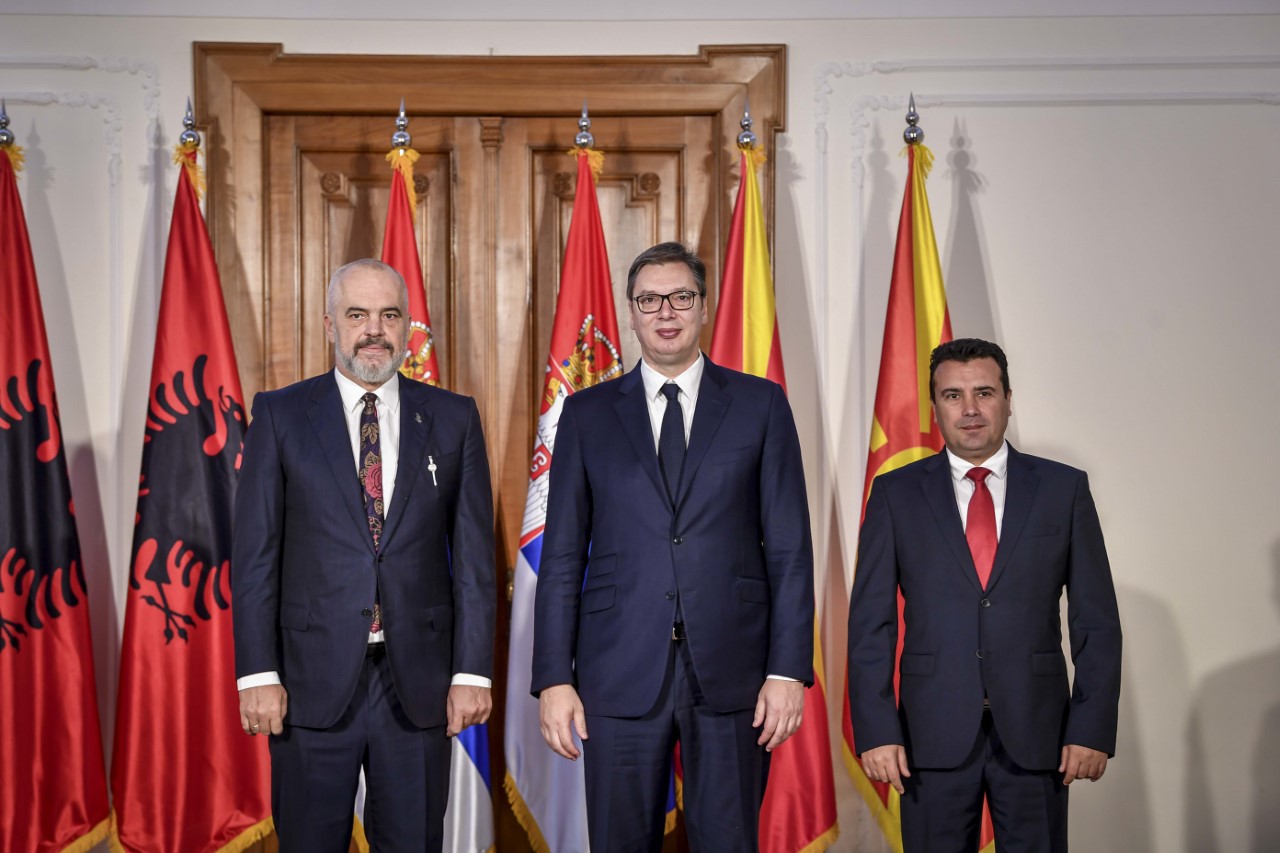
Can a plan to replicate the EU’s freedom of movement in the Balkans transform the region – or is it all about political posturing?
Akri Çipa
A week before the European Union dashed the EU hopes of Albania and North Macedonia back in October, the prime ministers of those countries met with Serbia’s president and unveiled a regional initiative that was quickly dubbed the “mini Schengen”.
In a nutshell, the idea was to create a Balkan version of the European Union’s border-free Schengen area.
As the EU’s refusal to open accession talks with Albania and North Macedonia reverberated throughout the Western Balkans, the “mini Schengen” scheme launched in the northern Serbian city of Novi Sad took on extra significance.
At a follow-up meeting, held in the North Macedonia resort city of Ohrid in November, leaders outlined proposals for introducing “four freedoms” across the three countries – namely, the freedom of movement of goods, services, people and capital.
But with the three leaders expected to meet for a third time in Albania in late December, some commentators baulk at the idea of applying the border-free principles of the EU to countries in the Balkans.
Does “mini Schengen” herald a new dawn of cooperation or is it merely political theatre?
While the initiative could fizzle in the cold light of reality, success is not out of the question – assuming plenty of good will, a few changes to the current plan and the support of EU partners.
Barriers to inclusivity
Though initiated by just three Balkan countries, the “mini Schengen” concept is predicated on the idea of freedom of movement across the region.
Though observers including U.S. officials say inclusivity is the key to making it work, the plan as it stands offers few incentives for other states to join.
Representatives of Bosnia and Herzegovina and Montenegro attended the Ohrid summit but the president of Kosovo declined to take part against a backdrop of scepticism across the political spectrum in Kosovo.
Kosovo’s refusal to attend underlines a fundamental challenge. Tensions between Kosovo and Serbia are a major hindrance not only for bilateral relations but for regional cooperation as well.
The “derecognition” campaign that Serbia has long waged against Europe’s newest country raises doubts about Belgrade’s commitment to being a constructive regional player and undermines the premise of an all-inclusive “mini Schengen”.
Without the inclusion of other countries – not least Kosovo, which borders North Macedonia, Serbia and Albania – the initiative will only offer a tripartite format for solving bilateral issues.
Limited economic rationale
Champions of the “mini Schengen” idea tout it as a way to unleash economic cooperation and new economic opportunities, but how effective can it really be?
So far, Serbian President Aleksandar Vucic is the only leader to offer an economic rationale, but one paradoxically grounded in the competitive logic of a fixed pie, with only so much prosperity to go round.
In his pitch to the Serbian people, Vucic argued that the initiative benefits Serbia the most due to the country’s larger and more competitive market.
That is in many regards true, as Serbia is the most competitive economy and the largest market of all Western Balkan countries. But the question then is: why should Albania and North Macedonia – or other Balkan countries, for that matter – sign up?
Furthermore, what additional benefits are there to existing agreements between countries?
Some of these concerns were highlighted by Montenegro’s Minister of Economy, Dragica Sekulic, who said after the Ohrid summit that her country was not interested in joining.
She argued that most countries in the region already allow a certain amount of freedom of movement thanks to bilateral agreements.
She also noted that Western Balkan countries are part of the Central European Free Trade Agreement (CEFTA), which guarantees a degree of free flow of people and goods.
When exporting within the CEFTA region, the most important barriers are administrative barriers, namely customs procedures.
The “mini Schengen” plan would remove these administrative barriers – but that is hardly a ground-breaking aspiration. Better customs procedures and passport-free travel, to some extent already in place on a bilateral basis, are not sufficient to justify all the hype.
Towards the next summit
As the next summit looms, there are opportunities to address legitimate questions surrounding the project and to make improvements.
First, to be taken seriously, the initiators need to address the question of inclusivity that lies at the heart of the initiative. Much of the responsibility for doing this rests with the Serbian leadership.
Serbia and Kosovo will ultimately need to resolve their differences. In the meantime, under the auspices of the “mini Schengen”, Serbia could commit to a more constructive role by ceasing its aggressive “derecognition” campaign and toning down its hostile rhetoric.
That would at least allow Kosovo to sit at the table. It would also serve as a show of good faith that could highlight the potential of the initiative to be truly transformative for the region.
At the same time, for it to be sustainable and consequential, the “mini Schengen” needs to be institutionalised and move beyond the top-down, leader-centred approach seen so far.
While the involvement of EU partners is critical in this regard, the initiators need to show how the project can help the region move closer towards EU membership.
Support from EU partners could be towards the harmonisation of Western Balkan markets with the EU market.
This could come not only through guidance and institutional support but also through economic packages that would help increase the competitiveness of all the markets across the board, also alleviating the risk that the region’s smaller economies will be dominated by larger ones.
Finally, support from EU partners could come with strings attached and commitments in terms of foreign investment.
This would guarantee that the “mini Schengen” will not be exploited by foreign players – especially Russia, China and Turkey – seeking to penetrate Western Balkans markets and meddle in Balkan affairs./Balkaninsight





